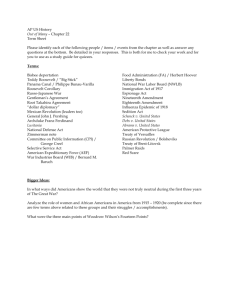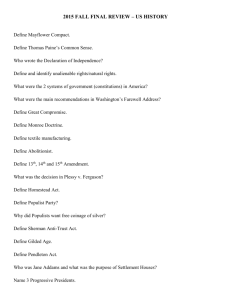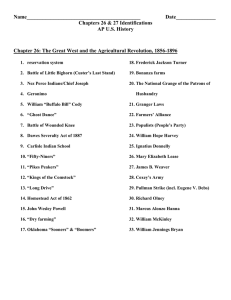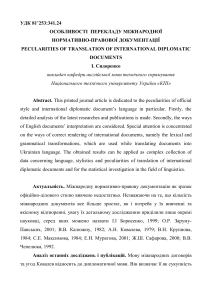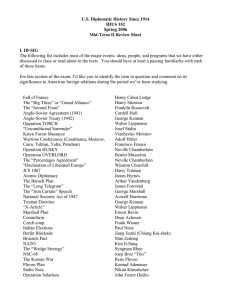U.S. Diplomatic History Since 1914 HIUS 352 Spring 2006 Mid-Term I Review Sheet
advertisement
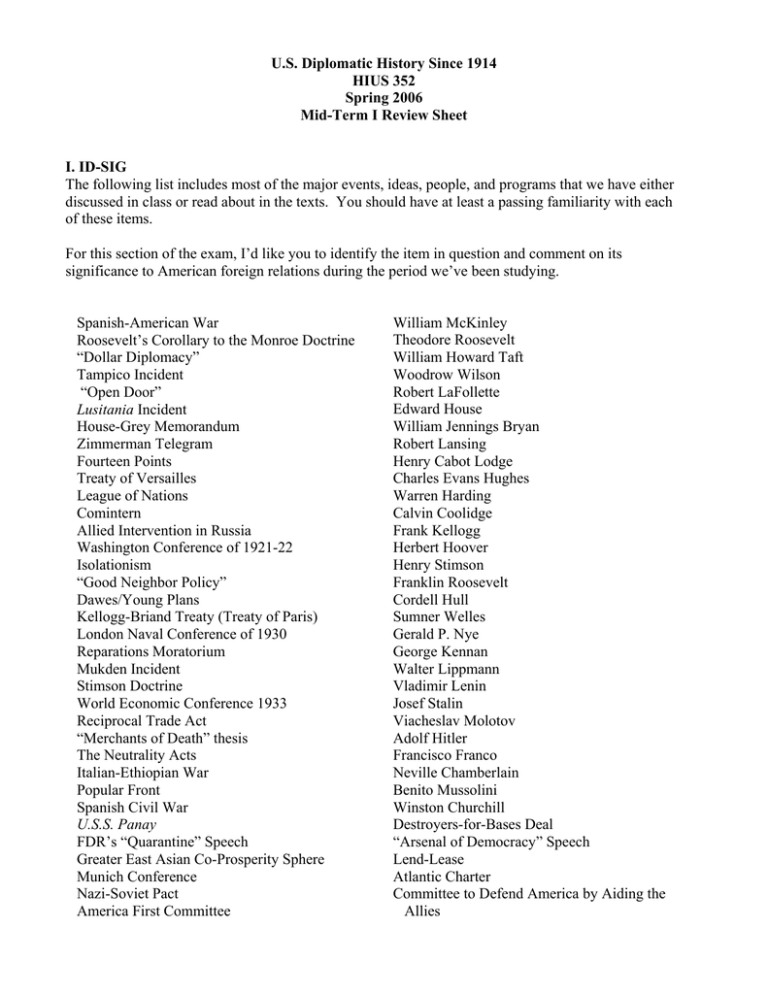
U.S. Diplomatic History Since 1914 HIUS 352 Spring 2006 Mid-Term I Review Sheet I. ID-SIG The following list includes most of the major events, ideas, people, and programs that we have either discussed in class or read about in the texts. You should have at least a passing familiarity with each of these items. For this section of the exam, I’d like you to identify the item in question and comment on its significance to American foreign relations during the period we’ve been studying. Spanish-American War Roosevelt’s Corollary to the Monroe Doctrine “Dollar Diplomacy” Tampico Incident “Open Door” Lusitania Incident House-Grey Memorandum Zimmerman Telegram Fourteen Points Treaty of Versailles League of Nations Comintern Allied Intervention in Russia Washington Conference of 1921-22 Isolationism “Good Neighbor Policy” Dawes/Young Plans Kellogg-Briand Treaty (Treaty of Paris) London Naval Conference of 1930 Reparations Moratorium Mukden Incident Stimson Doctrine World Economic Conference 1933 Reciprocal Trade Act “Merchants of Death” thesis The Neutrality Acts Italian-Ethiopian War Popular Front Spanish Civil War U.S.S. Panay FDR’s “Quarantine” Speech Greater East Asian Co-Prosperity Sphere Munich Conference Nazi-Soviet Pact America First Committee William McKinley Theodore Roosevelt William Howard Taft Woodrow Wilson Robert LaFollette Edward House William Jennings Bryan Robert Lansing Henry Cabot Lodge Charles Evans Hughes Warren Harding Calvin Coolidge Frank Kellogg Herbert Hoover Henry Stimson Franklin Roosevelt Cordell Hull Sumner Welles Gerald P. Nye George Kennan Walter Lippmann Vladimir Lenin Josef Stalin Viacheslav Molotov Adolf Hitler Francisco Franco Neville Chamberlain Benito Mussolini Winston Churchill Destroyers-for-Bases Deal “Arsenal of Democracy” Speech Lend-Lease Atlantic Charter Committee to Defend America by Aiding the Allies HIUS 352—Mid-Term Review | 2 II. Essays In preparing for the essay portion of the exam you should consider: · the American practice of neutrality and its effectiveness; · the nature of Wilsonianism and its relevance for U.S. foreign policy throughout the period in question; · the role and potential impact of American cultural diplomacy on the practice of American foreign policy; · the conditions under which Americans support policies of diplomatic interventionism; · the extent to which American policies were expressions of self-interest or benevolent idealism. N.B.: This guide is intended to aid you in your studying. It is not intended to be inclusive of all the terms, events, individuals, and ideas mentioned in class or in the texts. It is, however, a pretty fair representation of the pool from which the IDs and essay questions will be drawn.
